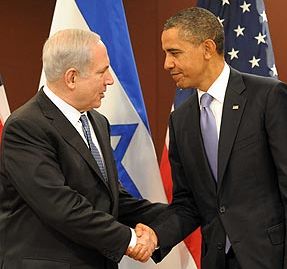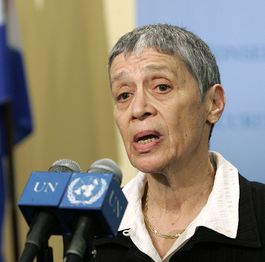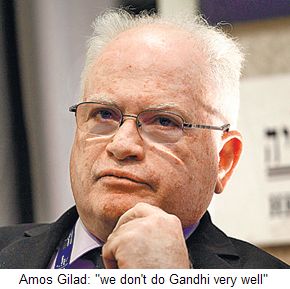Judith Butler writes:
Among the many astonishing claims that Barack Obama made in his recent speech opposing the Palestinian bid for statehood was that ‘peace will not come through statements and resolutions.’ This is, at best, an odd thing to say for a president whose ascendancy to power itself depended on the compelling use of rhetoric. Indeed, his argument against the power of statements and resolutions at the United Nations to achieve peace was a rhetorical ploy that sought to minimise the power of rhetorical ploys. More important, it was an effort to make sure that the United States government remains the custodian and broker of any peace negotiation, so his speech was effectively a way of trying to reassert that position of custodial power in response to the greatest challenge it has received in decades. And most important, his speech was an effort to counter and drain the rhetorical force of the very public statements that are seeking to expose the sham of the peace negotiations, to break with the Oslo framework, and to internationalise the political process to facilitate Palestinian statehood.
There are reasons to question whether the Palestinian bid for statehood at this time and on these terms is the right thing to do, but they are not the ones that Netanyahu put forward in his blustery and arrogant remarks. Within the Palestinian debates, many have questioned whether the present bid for statehood effectively abandons the right of return for diasporic Palestinians, leaves unaddressed the structural discrimination against Palestinians within the current borders of Israel, potentially abandons Gaza, delegitimises the Palestinian Liberation Organisation by elevating the Palestinian Authority into a state structure, takes off the table the one-state solution, and mistakenly relies on the UN as an arbiter rather than insisting that Palestinian self-determination form the basis of any future state. Critics like Ali Abunimah, the editor of the Electronic Intifada, argue that the UN has proven itself time and again to be a venue for paralysis, given the veto rules that govern the Security Council and secure the hegemony of major powers, making it likely that the present bid for statehood will be defeated by a US veto.
And yet, one effect that is already felt as a consequence of these ‘resolutions and statements’ is that the 1993 Oslo Accords can no longer be presumed to be the framework for future negotiations – indeed, we may see that framework crumble definitively in the coming days. Oslo not only gave the US a privileged position as broker of all ‘peace’ negotiations, but effectively sponsored the massive growth of Israeli settlements on Palestinian land by refusing to recognise their illegal status according to international law. In fact, the Oslo years have seen the number of settlers grow from 241,500 in 1992 to 490,000 in 2010 (including East Jerusalem), and the indefinite deferral of all ‘permanent status issues’ – effectively establishing the occupation as a regime without foreseeable end. The Oslo Accords also implemented the principle that any change of status of Occupied Palestine would depend on the ‘consent’ of Israel. Thus, the power of Israel to decide the future of Palestine pre-empted the international right of Palestinians to self-determination.

 In case anyone is in any doubt that President Obama’s comments on the Israeli-Palestinian conflict, delivered to the UN General Assembly this morning, were nothing more than a string of worthless peace-process platitudes, then listen to the rave review he got from Israeli foreign minister
In case anyone is in any doubt that President Obama’s comments on the Israeli-Palestinian conflict, delivered to the UN General Assembly this morning, were nothing more than a string of worthless peace-process platitudes, then listen to the rave review he got from Israeli foreign minister  September is already here, and professor Gabriela Shalev, Israel’s previous ambassador to the U.N., is more pessimistic than ever: “We have no tools, we’re in trouble.”
September is already here, and professor Gabriela Shalev, Israel’s previous ambassador to the U.N., is more pessimistic than ever: “We have no tools, we’re in trouble.” In a
In a